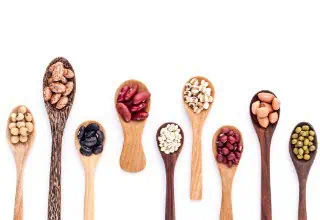 A1 beta-casein from normal cow’s dairy can be inflammatory, but only in people with the enzyme that cleaves it to the inflammatory peptide beta-casomorphin-7 (BCM7).
A1 beta-casein from normal cow’s dairy can be inflammatory, but only in people with the enzyme that cleaves it to the inflammatory peptide beta-casomorphin-7 (BCM7).
A2 casein from goat, sheep, and A2 cow dairy is usually fine.
Lara Briden - The Period Revolutionary
Leading the change to better periods and hormones
Nutritional advice for menstrual health including nutritional protocols for PCOS, endometriosis, PMDD, and perimenopause. Strategies include reducing sugar to reverse insulin resistance and supplementing magnesium to stabilize the nervous system.
 A1 beta-casein from normal cow’s dairy can be inflammatory, but only in people with the enzyme that cleaves it to the inflammatory peptide beta-casomorphin-7 (BCM7).
A1 beta-casein from normal cow’s dairy can be inflammatory, but only in people with the enzyme that cleaves it to the inflammatory peptide beta-casomorphin-7 (BCM7).
A2 casein from goat, sheep, and A2 cow dairy is usually fine.

Insulin resistance is a hormonal condition associated with chronically high insulin. It’s also called hyperinsulinemia, metabolic syndrome, or pre-diabetes and is a major player in many women’s health conditions, including PCOS, acne, fibroids, perimenopause, and heavy periods.
Insulin resistance also causes abdominal weight gain and is a risk factor for diabetes, cancer, osteoporosis, dementia, and heart disease.
Do you have insulin resistance? It’s time to find out.

Normal period pain or dysmenorrhea should be mild and respond to simple treatments like ibuprofen, zinc, or a dairy-free diet.
If period pain does not respond to simple treatments, it could be something more serious such as endometriosis or adenomyosis.
Debilitating period pain is never normal.

Phytoestrogens are a special group of phytonutrients that occur naturally in most plant foods. The two major classes are isoflavones in soy, and lignans in seeds, whole grains, legumes, fruits, and vegetables.
They’re called phytoestrogens because they interact with estrogen receptors but they’re not estrogen. In fact, they bind so weakly to estrogen receptors that they effectively block estradiol and are therefore better categorized as anti-estrogen.